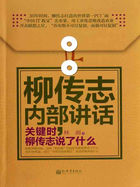Of these there be about sixty, whereof twelve are of greater dignity than the rest, that is to say, the mercers, grocers, drapers, fishmongers, goldsmiths, skinners, merchant-tailors, haberdashers, salters, ironmongers, vintners, clothworkers, which, with most of the rest, have common halls, divers of them being of ancient and magnificent structure, wherein they have frequent meetings, at the summons of their master or wardens, for the managing and regulation of their respective trades and mysteries. These companies, as I shall show, are the roots of the whole government of the city. For the liveries that reside in the same ward, meeting at the wardmote inquest (to which it belongs to take cognizance of all sorts of nuisances and violations of the customs and orders of the city, and to present them to the court of aldermen), have also power to make election of two sorts of magistrates or officers; the first of elders or aldermen of the ward, the second of deputies of the same, otherwise called common councilmen.
"The wards in these elections, because they do not elect all at once, but some one year and some another, observe the distinction of the three tribes; for example, the scazon, consisting of ten wards, makes election the first year of ten aldermen, one in each ward, and of 150 deputies, fifteen in each ward, all which are triennial magistrates or officers, that is to say, are to bear their dignity for the space of three years.
"The second year the metoche, consisting of eight wards, elects eight aldermen, one in each ward, and 120 deputies, fifteen in each ward, being also triennial magistrates.
"The third year telicouta, consisting of a like number of wards, elects an equal number of like magistrates for a like term. So that the whole number of the aldermen, according to that of the wards, amounts to twenty-six; and the whole number of the deputies, to 390.
"The aldermen thus elected have divers capacities; for, first, they are justices of the peace for the term, and in consequence of their election. Secondly, they are presidents of the wardmote and governors each of that ward whereby he was elected. And last of all, these magistrates being assembled together, constitute the Senate of the city, otherwise called the court of aldermen; but no man is capable of this election that is not worth ?0,000. This court upon every new election makes choice of nine censors out of their own number.
"The deputies in like manner being assembled together, constitute the prerogative tribe of the city, otherwise called the common council, by which means the Senate and the people of the city were comprehended, as it were, by the motion of the national government, into the same wheel of annual, triennial, and perpetual revolution.
"But the liveries, over and above the right of these elections by their divisions mentioned, being assembled all together at the guild of the city, constitute another assembly called the common hall.
"The common hall has the right of two other elections; the one of the lord mayor, and the other of the two sheriffs, being annual magistrates. The lord mayor can be elected out of no other than one of the twelve companies of the first ranks; and the common hall agrees by the plurality of suffrages upon two names, which, being presented to the lord mayor for the time being, and the court of the aldermen, they elect one by their scrutiny. For so they call it, though it differs from that of the commonwealth.
The orator or assistant to the lord mayor in holding of his courts, is some able lawyer elected by the court of aldermen, and called the recorder of Emporium.
"The lord mayor being thus elected, has two capacities: one regarding the nation, and the other the city. In that which regards the city, he is president of the court of aldermen, having power to assemble the same, or any other council of the city, as the common council or common hall, at his will and pleasure; and in that which regards the nation, he is commander-in-chief of the three tribes whereinto the city is divided; one of which he is to bring up in person at the national muster to the ballot, as his vice-comites, or high sheriffs, are to do by the other two, each at their distinct pavilion, where the nine aldermen, elected censors, are to officiate by three in each tribe, according to the rules and orders already given to the censors of the rustic tribes. And the tribes of the city have no other than one common phylarch, which is the court of aldermen and the common council, for which cause they elect not at their muster the first list called the prime magnitude.
"The conveniences of this alteration of the city government, besides the bent of it to a conformity with that of the nation, were many, whereof I shall mention but a few: as first, whereas men under the former administration, when the burden of some of these magistracies lay for life, were oftentimes chosen not for their fitness, but rather unfitness, or at least unwillingness to undergo such a weight, whereby they were put at great rates to fine for their ease; a man might now take his share in magistracy with that equity which is due to the public, and without any inconvenience to his private affairs. Secondly, whereas the city (inasmuch as the acts of the aristocracy, or court of aldermen, in their former way of proceeding, were rather impositions than propositions) was frequently disquieted with the inevitable consequence of disorder in the power of debate exercised by the popular part, or common council; the right of debate being henceforth established in the court of aldermen, and that of result in the common council, killed the branches of division in the root. Which for the present may suffice to have been said of the city of Emporium.















